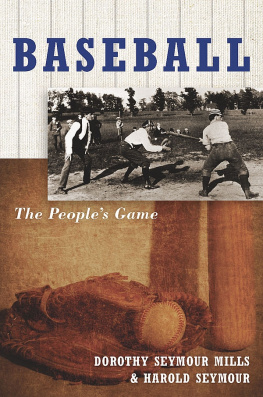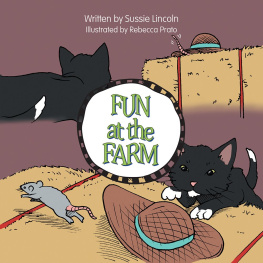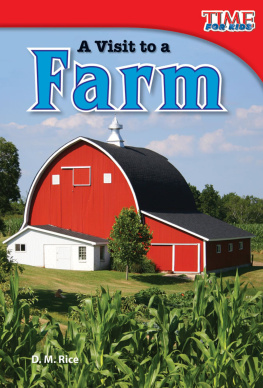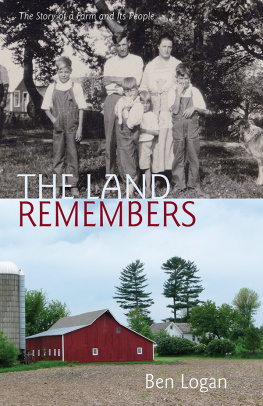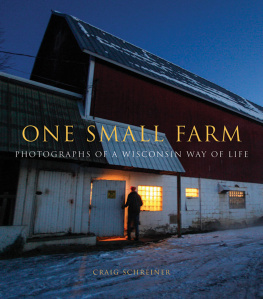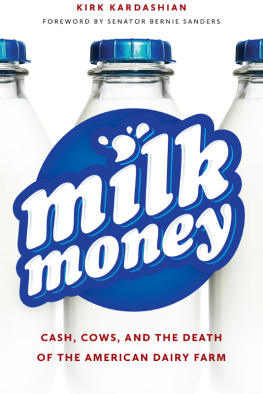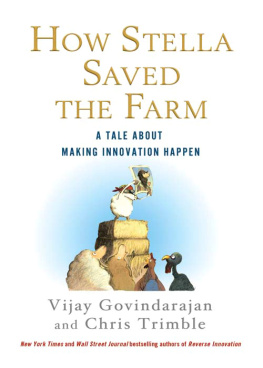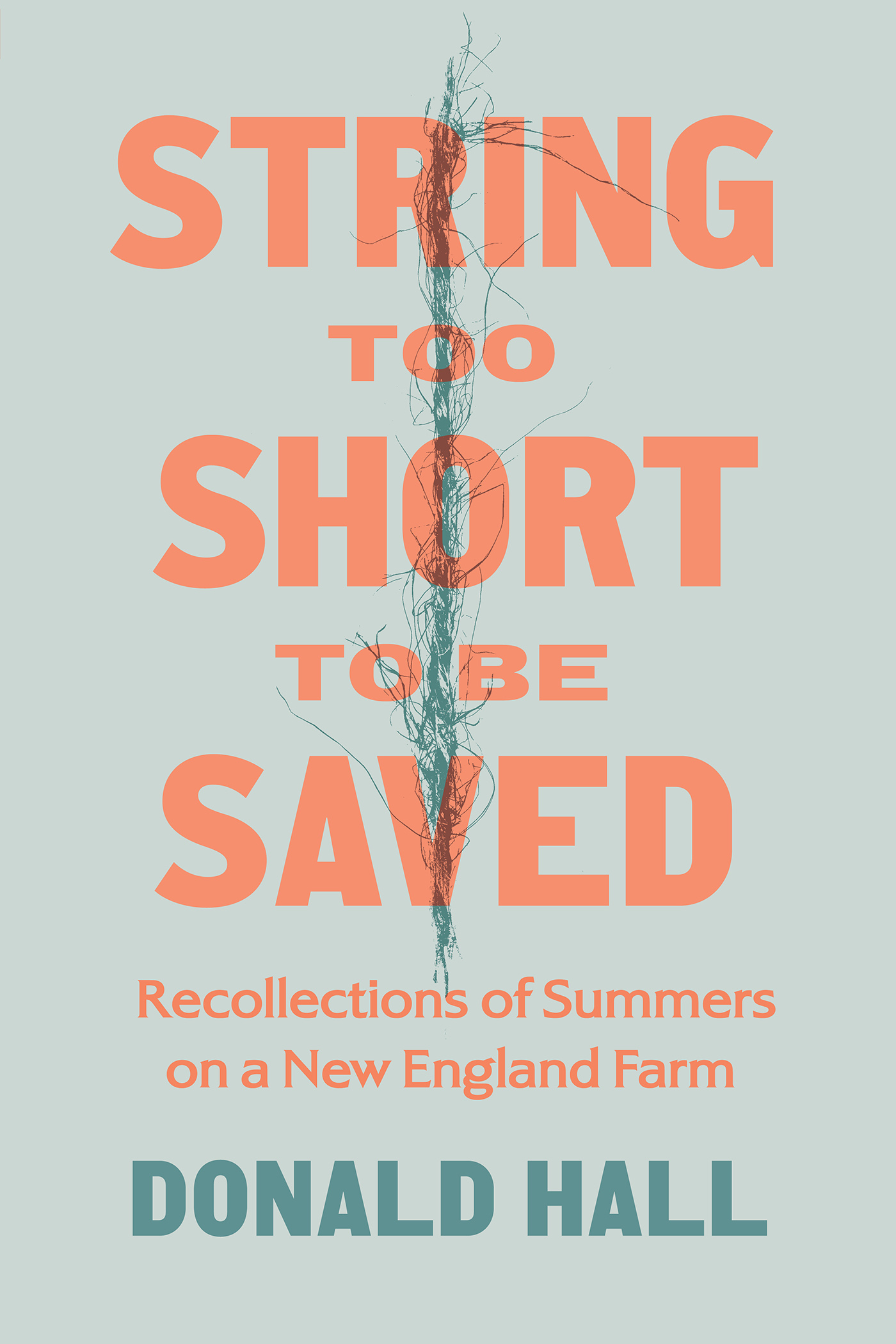String
Too Short to
Be Saved
Also by Donald Hall
Poetry
Exiles and Marriages
The Dark Houses
A Roof of Tiger Lilies
The Alligator Bride
The Yellow Room
The Town of Hill
A Blue Wing Tilts at the Edge of the Sea
Kicking the Leaves
The Toy Bone
The Happy Man
The One Day
Old and New Poems
The Museum of Clear Ideas
The Old Life
Without
The Painted Bed
White Apples and the Taste of Stone
The Back Chamber
The Selected Poems of Donald Hall
Prose
String Too Short to Be Saved
Henry Moore
Remembering Poets
Goatfoot Milktongue Twinbird
Dock Ellis in the Country of Baseball
The Weather for Poetry
Fathers Playing Catch with Sons
The Ideal Bakery
Seasons at Eagle Pond
Poetry and Ambition
Here at Eagle Pond
Their Ancient Glittering Eyes
Life Work
Death to the Death of Poetry
Principal Products of Portugal
Willow Temple
Breakfast Served Any Time All Day
The Best Day the Worst Day
Unpacking the Boxes
Christmas at Eagle Pond
Essays After Eighty
On Eagle Pond
A Carnival of Losses
Old Poets
First published in 1979 by godine
Boston, Massachusetts
Copyright 1960, 1961, 1979, 2015 by Donald Hall
all rights reserved
No part of this book may be used or reproduced in any manner
whatsoever without written permission from the publisher, except in
the case of brief quotations embodied in critical articles and reviews.
For more information, please visit www.godine.com
Excerpts from this book appeared in The American Scholar and Audience.
Two chapters, The Wild Heifers and The Blueberry Picking (under the title A Day on Ragged), first appeared in The New Yorker.
Portions of the Epilogue appeared in Ford Times.
lc 78-74249
isbn 978-1-56792-554-8
isbn 978-1-56792-494-7 (ebook)
isbn 978-1-56792-710-8 (revised edition)
To the memory of
Wesley and Kate Wells
A man was cleaning the attic of an old house in New England and he found a box which was full of tiny pieces of string. On the lid of the box there was an inscription in an old hand: String too short to be saved.
One
The Wild Heifers
M y grandfather always put his heifers out to pasture in the spring, on a lot about five miles from the house, and visited them once a week to salt them, grain them, and see that they had water. In the summer of 1943 , when I was fourteen, the heifers broke out of their pasture in early June, and my grandfather had been unable to approach them with the bags of salt and grain. We heard about them as they appeared all over the country. My grandfather had hoped that some piece of luck would box them up again, that they would wander into a barn one night and poke their heads into some empty stalls, or even blunder back to their own pasture. Heifers had gone wild before, and he wasnt going to let it worry him.
In September the hay was in and the talk I overheard at Henry Powers post office and store was of harvest and frost. Now it was the week I would leave the farm, to go back to Connecticut and to school. I hated school, and I already began to be homesick for the summer. We lingered at night in the kitchen while I had a glass of milk and my grandfather a bowl of bread and milk and my grandmother a glass of Moxie before going to bed. The kitchen floor was bare and gray, unpainted and unwaxed, but scrubbed until it looked as soft as balsa wood. I stared at it and listened to the liquid sounds we made. My grandfather told a story that Thursday night about some young cattle of John Peabodys that had stayed out all winter. People had seen them in February with icicles hanging from their nostrils and ice shining from their leather sides, but blowing forth in white steam a proof of life. In April when the snow melted John had to shoot them like deer and use the carcasses for meat and shoes. I knew that the next day we would hike to catch our heifers.
After the morning chores we ate lunch at eleven-thirty and started down the macadam toward Jacob Bucks woodlot, where we had heard the heifers reported three days earlier. It was a two-mile walk. I tried to remember not to let my legs pump out too fast, since my grandfather sometimes felt a pain in his side when he was winded. Few cars were on the road that summer, compared to the numbers in years before or since, but that noon a convoy of army trucks loaded with soldiers kept us single file on the edge of the ditch. We stayed close, his legs nearly cutting under mine, so that we could talk.
The day had begun warm, end-of-summer, dry with the energy of September, but now the sky to the west had turned gray. The wind shifted, and I turned to look at my grandfather. He nodded. I fear it will rain on us before were done, he said. I reckon we can stand a little wet, if were leading the heifers home. I knew what would come next. Rain or the lost heifers would bring to his mind and his tongue some anecdote of the past and he would recount it to me. I dont remember what it was, this time. His memory was great, and his curiosity, and the two kept his voice active with stories out of his youth and manhood. We could have walked ten years without breaking the links of anecdote or repeating a single one. When we were haying I would try to pitch on while he loaded, so that his breath could be saved for talk. At night in the tie-up while he was milking, he would tell stories or recite long poems he had memorized years before to speak as pieces at the Lyceum. The stories were various and anything might recall them. Walking along the road, he might point out a cellar hole, or distinguish for me in the distance a particular hill, covered with maple now, which his father had cultivated; the recognition would start him on the track of a character or an event. Usually his stories were funny, but they were not jokes. He never began, There was a man who... but Once Herbert Perkins...
I remember once we were talking about droughts, and I heard the snorting laugh which told me that he remembered a story. Did I ever tell you, he said, what Ben Bluitt said to the Reverend Everrill over in Wilmot Flat? I shook my head and waited. Old Ben never amounted to much. When I knew him he was back from the war twenty years. He did odd jobs and took care of his granddaughter. She ran away with the lumber man who lost his nose in the sawmill, or so he said, you remember. He drank quite a bit then, beer and rum, but my, he was quick with an answer. I must have told you a hundred things he said. Well, one summer there was a terrible drought over to Wilmot Flat, here too, and Ben was fixing some shingles that had come loose on the church. It was going to take him two weeks, a slow worker, and he would get four dollars and a quarter from the Reverend Everrill, but there wasnt probably much else for Ben to be doing just then. Now the Reverend Everrill was a good man, good, but not a working preacher like Elder Morrill and a womanish kind of fellow, too. He wouldnt work six days in the field and then preach four hours a Sunday. Men didnt take to him much. They said he was happiest when the Kings Daughters asked him to come to a circle. He walked past Ben five or six times a day, walking to and from the parsonage with Ben squatting on the roof of the church in the sun, and every time hed pass by hed say, My and here my grandfathers voice became a falsetto Mr. Bluitt, have you ever seen such a dry time? Old Ben never said anything at all, except one afternoon when the old preacher came by one time too many. He said up at Ben, My, Mr. Bluitt, have you ever seen such a dry time? and Ben looked down at him and said, Never in my life my grandfathers voice was low and solemn Reverend Everrill. This morning we had to soak the old sow before shed hold swill. Grandfathers voice expired in laughter, and I joined him. And he never did ask old Ben any more about the dry time, he said.






